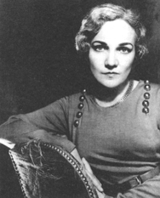 In remembrance of an afternoon spent in the NYPL archives, reading Herman Melville’s letters to the Hawthornes, with Ms. Carrie Frye last week, I’ll start with a quote from Melville’s “Hawthorne and His Mosses,” published August 24, 1850: “But it is better to fail in originality, than to succeed in imitation. He who has never failed somewhere, that man cannot be great. Failure is the true test of greatness. And if it be said, that continual success is proof that a man wisely knows his powers — it is only to be added that, in that case, he knows them to be small.”
In remembrance of an afternoon spent in the NYPL archives, reading Herman Melville’s letters to the Hawthornes, with Ms. Carrie Frye last week, I’ll start with a quote from Melville’s “Hawthorne and His Mosses,” published August 24, 1850: “But it is better to fail in originality, than to succeed in imitation. He who has never failed somewhere, that man cannot be great. Failure is the true test of greatness. And if it be said, that continual success is proof that a man wisely knows his powers — it is only to be added that, in that case, he knows them to be small.”
“Writing, in any sense that matters, cannot be taught. It can only be learned, and learned by each separate one of us in his own way, by the use of his own powers of imagination and perception, the ability to learn the lessons he has set for himself… The good artist is first a good workman…” — Katherine Anne Porter (above), from Collected Stories and Other Writings, out in October from The Library of America.
“[O]ne of the hazards of being an American writer, and I’m well placed to know it, is that eventually you have nothing to write about. A funny thing happens on the way to the typewriter. There is a decidedly grave danger of becoming a celebrity, of becoming a star, of becoming a personality. Again, I’m very well placed to know that. It’s symptomatic of the society that doesn’t have any real respect for the artist. You’re either a success or a failure and there’s nothing in between.” — James Baldwin
“I only know it takes weeks to recover [from an interview], as if one had been in a car accident…. I think J.D. Salinger is correct in granting no interviews, and in making no speeches… I have [Graham Greene’s] telephone number but I wouldn’t dream of using it. I don’t seek out writers because we all want to be alone.” — Patricia Highsmith
“After all, one knows one’s weak points so well, that it’s rather bewildering to have the critics overlook them and invent others.” — Edith Wharton
“Don’t have any clap-trap announcements and ‘sensation’ puffs — nor any extracts published previous to publication of book — Have a decent publisher, in short.” — from Herman Melville’s publishing instructions to his brother
Prior installments of literary quips, observations, etc., are here, here, and here.